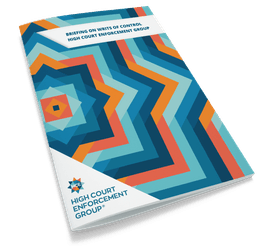Stays of execution in enforcement

A stay of execution will stop the enforcement process. There are several sets of circumstances under which the court may order a stay.
- When there is an appeal pending against the judgment
- When there are special circumstances making it inexpedient to enforce a writ of control or the applicant is unable to pay
- Where matters have occurred since the date of judgment
- Insolvency and third-party claims
Appeals
Under CPR 52.7, when a defendant appeals a judgment, this does not automatically mean that a stay of execution is granted and they will have to ask the court to grant the stay. This is to allow enforcement to proceed on the principle that the creditor is entitled to the “fruits of the judgment”.
If the defendant claims that they cannot afford to make an appeal if they have to pay the judgment first, the court may grant a stay, perhaps with the condition that money is paid into the court first, but only once detailed financial evidence has been provided to corroborate the claim.
Special circumstances
Under CPR 83.7, the defendant may apply to the court to ask them to order a stay of execution of a writ of control either absolutely or for a specific time period, provided that either:
- That there are special circumstances which render it inexpedient to enforce the judgment or order; or
- That the applicant is unable from any cause to pay the money, then,
Matters since the date of judgment
Under CPR 40.8A, a party against whom a judgment has been given or an order made may apply to the court for a stay of execution of the judgment or order; or other relief, on the ground of matters which have occurred since the date of the judgment or order, and the court may by order grant such relief, and on such terms, as it thinks just.
Insolvency and third-party claims
Certain insolvency steps will have the effect of a stay of execution, as will a third-party claim (formerly known as interpleader claims).
Impact of a stay of execution on enforcement
We do find that debtors sometimes confuse a stay of execution with an application to set aside or vary the judgment. An application to set aside does not stop enforcement.
An application for a stay of execution also does not normally, in itself, stop enforcement. Once the stay is granted, then the enforcement agent must stop enforcement. If they have already removed goods, then the court will direct if and when the goods are to be returned to the defendant.



